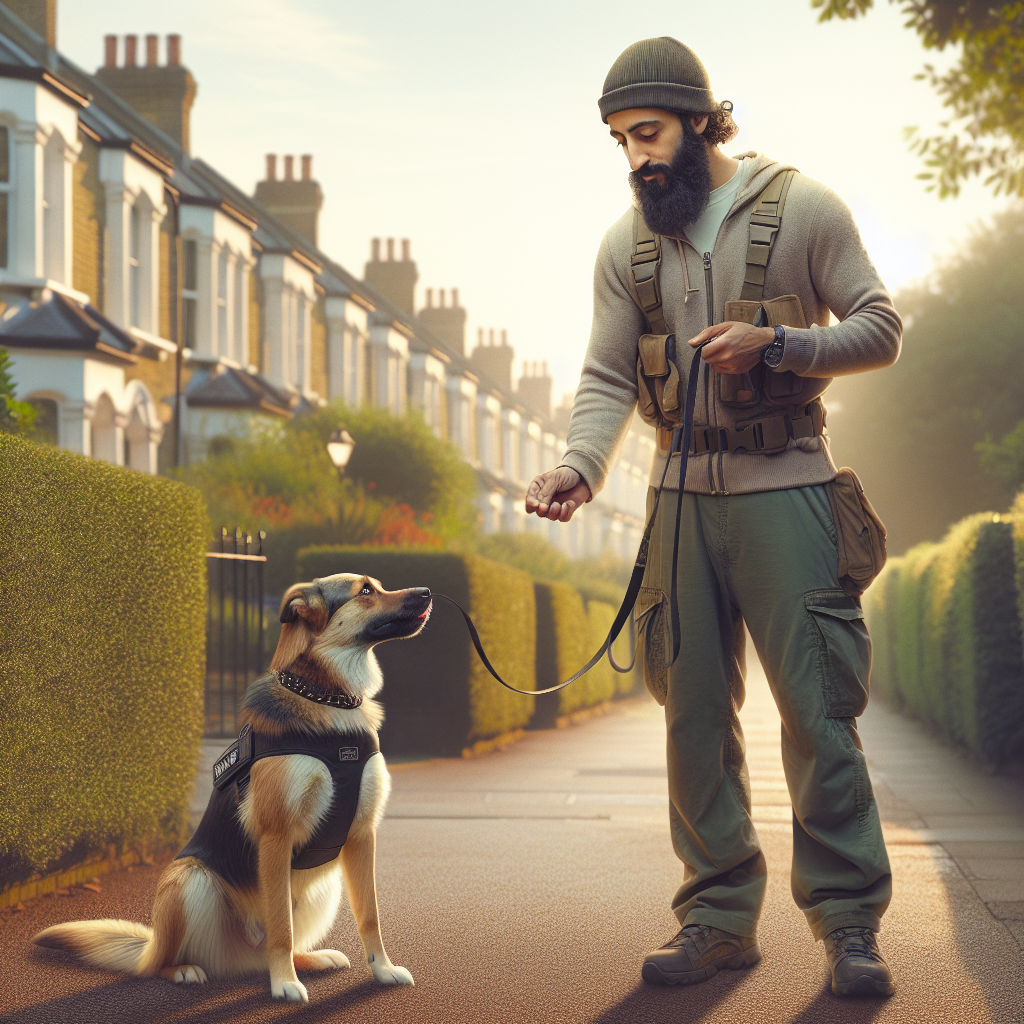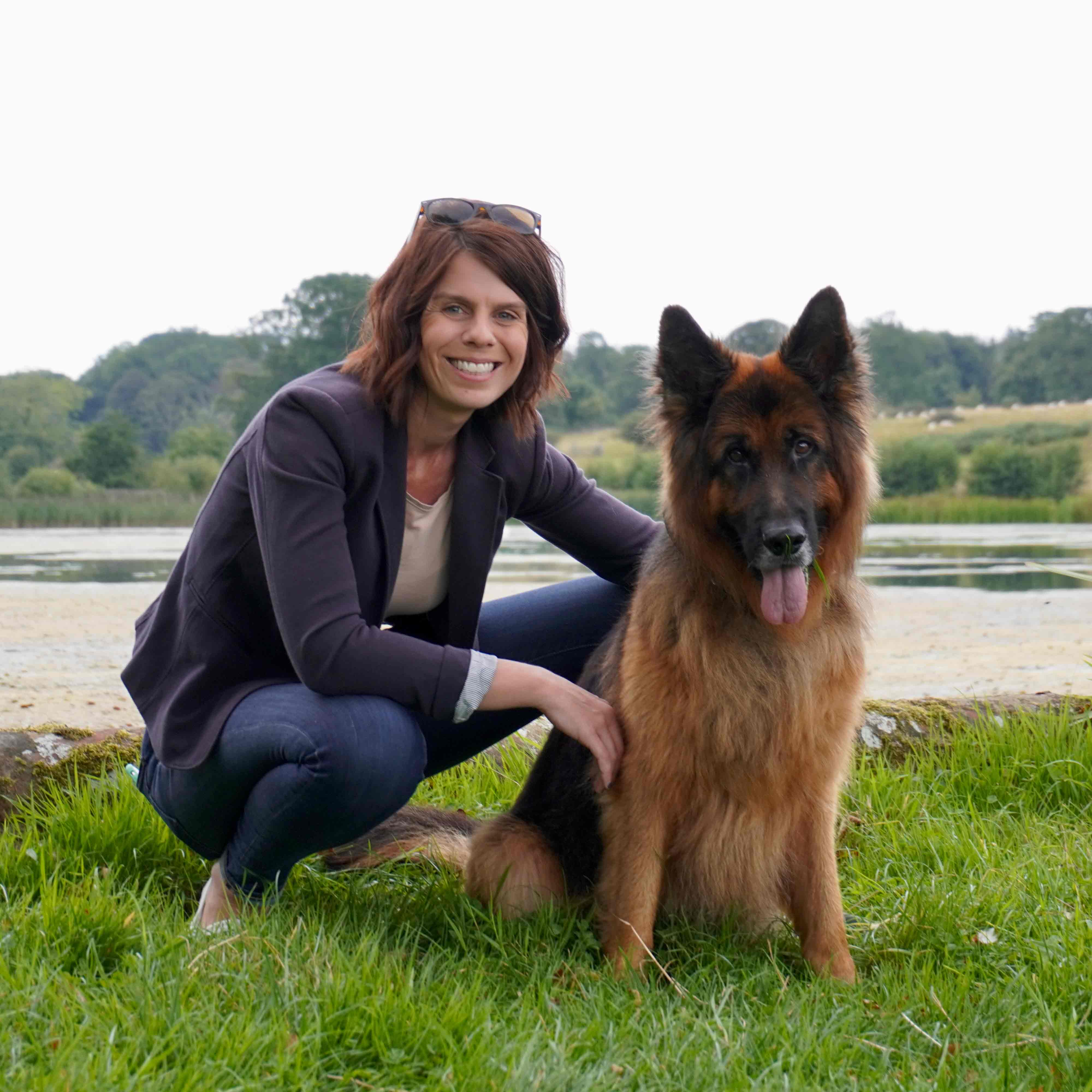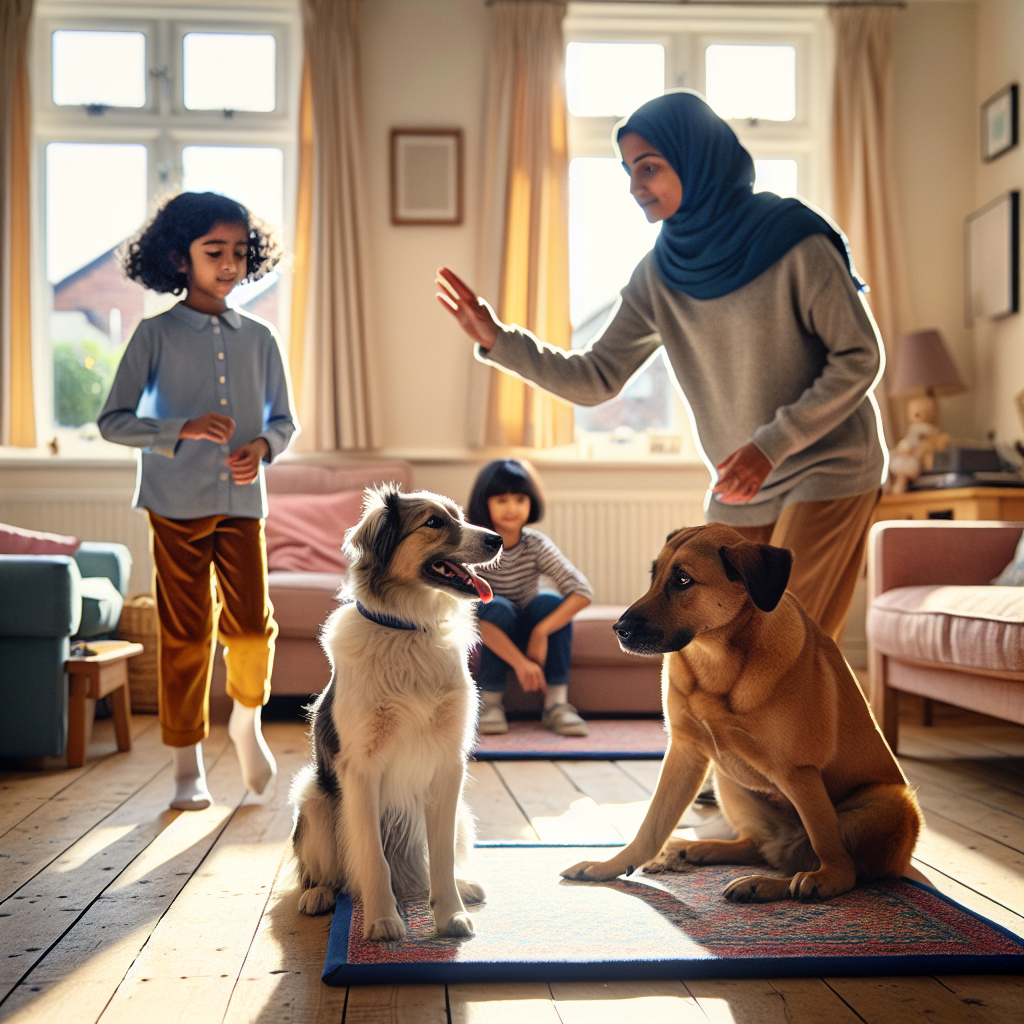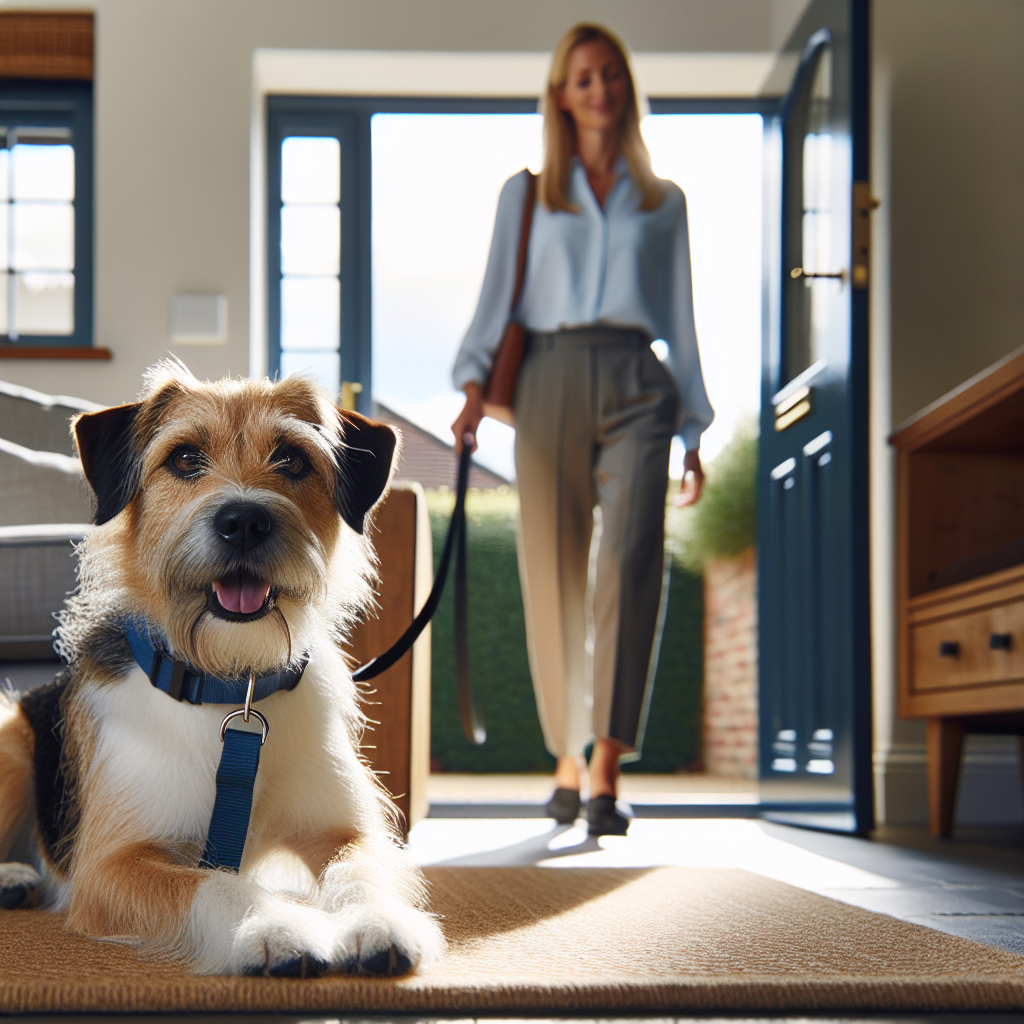Dog Reactivity on Walks Solutions That Work

Understanding Dog Reactivity on Walks
Dog reactivity on walks can turn a simple stroll into a daily struggle. You might see barking, lunging, spinning, or freezing the moment a trigger appears. At Smart Dog Training we help families solve dog reactivity on walks with a precise plan, expert coaching, and proven results. Your certified Smart Master Dog Trainer SMDT will guide you from chaos to calm in a structured and supportive way.
Dog reactivity on walks is driven by emotion. Most reactive dogs feel worried or frustrated when faced with other dogs, people, bikes, or traffic. The behaviour you see is your dog trying to make the scary or exciting thing go away. Smart Dog Training addresses both the emotion and the behaviour so your dog can learn calm, confident choices in real life settings.
What Dog Reactivity on Walks Looks Like
Signs of dog reactivity on walks include sudden tension on the lead, a fixed stare, stiff tail, closed mouth, or scanning. When the trigger gets closer your dog may bark, lunge, or jump forward. Some dogs shut down and refuse to move. Others pace or spin. Every pattern has a reason. Smart Dog Training will show you how to read early signals and respond before your dog tips over threshold.
Why It Happens Triggers and Emotions
Dog reactivity on walks often comes from one or more of the following:
- Lack of early social learning in calm settings
- Past scary events around dogs or people
- Over arousal from long periods without rest or decompression
- Frustration from tight leads or holding back during greetings
- Trigger stacking when several small stresses pile up in one day
No matter the cause, Smart Dog Training has a clear pathway that meets your dog where they are and builds steady progress that lasts.
The Smart Dog Training Approach
When we work on dog reactivity on walks we use a structured Smart plan that blends behaviour change with practical handling. Every step is delivered by a certified trainer. Your Smart Master Dog Trainer SMDT designs a customised roadmap after assessing your dog, your routes, and your goals.
Assessment by a Smart Master Dog Trainer
We begin with a full assessment. For dog reactivity on walks this covers history, daily routine, sleep, diet notes, and health flags that may affect behaviour. We also observe a controlled walk to see distance needs and early signals. This allows us to design a plan that fits your life, your area, and your dog.
Safety First and Management
Before we change behaviour we protect your dog and the public. For dog reactivity on walks Smart Dog Training sets clear safety steps so you can start walking with more control right away:
- Choose quiet routes and wider paths during low traffic times
- Use a secure Y front harness and a standard lead for clear handling
- Carry high value food and have it ready before you step out
- Stand between your dog and the trigger and add distance early
- Practice calm exits when a surprise appears
Common Triggers on UK Pavements and Parks
Dog reactivity on walks is often sparked by off lead dogs rushing over, narrow footpaths with no passing space, bikes and scooters, running children, or sudden noises like refuse lorries. We map your local routes to avoid pinch points, then rehearse better passing skills in easier places first. Smart Dog Training sets you up to win before you face harder challenges.
Mistakes That Make Dog Reactivity on Walks Worse
Well meaning owners can make dog reactivity on walks harder without realising. Avoid these common errors:
- Walking straight at triggers instead of creating a gentle arc
- Keeping a tight lead which adds pressure and frustration
- Talking too much during the trigger moment which can add tension
- Letting strangers approach for pats when your dog is unsure
- Trying to fix everything on busy weekend routes too soon
Smart Dog Training replaces these habits with simple moves and timing that de escalate the moment and set up learning.
Foundation Skills Your Dog Needs
To resolve dog reactivity on walks we build strong foundation skills. These are practical behaviours that keep your dog feeling safe and engaged with you.
Calm Stationing and Settle on Lead
We teach a relaxed stand or sit at your side where your dog breathes slowly and accepts food. This is the base for calm passes later. Smart Dog Training turns this into a routine that your dog understands and enjoys.
Name Response and Orient to Handler
Your dog learns to turn to you when you say their name, even when mild distractions are present. For dog reactivity on walks this quick orient skill lets you redirect early and avoid the spiral up.
Loose Lead Walking for Reactive Dogs
Slack lead skills reduce frustration and help your dog feel free to move. Smart Dog Training uses clear reinforcement patterns so your dog chooses position without pressure. This makes dog reactivity on walks easier to manage in tight areas.
Step by Step Training Plan for Dog Reactivity on Walks
Smart Dog Training delivers a four stage plan. The steps are simple to follow and tailored to your routes. Dog reactivity on walks settles fastest when we respect distance and build confidence at each stage.
Stage One Create Distance and Decompression
We start by widening space around triggers. Your dog gets daily sniff walks in quiet areas to drop overall stress. For dog reactivity on walks this resets the system so your dog can think and learn again.
- Walk at off peak times in open spaces
- Let your dog sniff and explore at a gentle pace
- Keep sessions short and end on a calm note
Stage Two Desensitisation with Smart Focus Games
Now we expose your dog to low level versions of the trigger at safe distances. Your dog notices the trigger and then turns back to you for pay. Smart Dog Training uses Smart focus games that make looking away from the trigger feel natural and rewarding. This smooth step is vital for dog reactivity on walks.
Stage Three Counterconditioning with Smart Treat and Retreat
We pair the trigger with comfort and choice. Your dog sees the trigger then receives high value food from you. If a person or dog must pass, we set a gentle arc and give your dog the option to step away. Smart Dog Training treat and retreat patterns change how your dog feels about the world which reduces dog reactivity on walks.
Stage Four Rehearsal in Real Life Routes
We bring the skills onto your daily streets. First we pick easy wins then gradually work up. Your Smart trainer will coach your timing, footwork, and feeding rhythm so your dog stays under threshold. Step by step you will see dog reactivity on walks give way to calm routines and confident choices.
Handling Surprise Triggers
Even with planning you will sometimes get caught out. For dog reactivity on walks Smart Dog Training teaches simple emergency moves:
- Quarter turn and go to create space without yanking the lead
- Food scatter on grass to lower the head and slow breathing
- Park behind a car or hedge to break line of sight
These moves keep everyone safe and prevent big rehearsals of the old pattern.
Reading Your Dog's Body Language
Knowing early signs is the key to changing dog reactivity on walks. Look for soft eyes, slow blinks, and a loose jaw as green light signals. A freezing pause, a high tail, or a hard stare are amber warnings. Panting with a closed mouth, dilated pupils, and weight forward are red flags. Smart Dog Training will coach you to spot these in time and act with confidence.
How Long Change Takes and What Progress Looks Like
Most families start seeing easier mornings within a few weeks when they follow the plan. Dog reactivity on walks improves as your dog learns to scan, see, breathe, orient, and pass with support. Progress is not a straight line. Good days and wobbles are normal. Smart Dog Training tracks wins like shorter recovery, softer body, and quicker orient. Over time these become your new normal.
Tools We Recommend for Dog Reactivity on Walks
Smart Dog Training keeps tools simple and kind. A well fitted Y front harness and a standard lead give control and comfort. We pair this with a treat pouch and a variety of soft tasty food that your dog loves. These choices support better handling and faster learning for dog reactivity on walks.
Lifestyle Changes That Speed Results
Dog reactivity on walks often reduces faster when daily life supports calm. Smart Dog Training focuses on:
- Predictable routines with clear rest periods
- Enrichment such as sniff games and simple food puzzles
- Short training reps instead of long hard sessions
- Regular quiet walks to decompress after busy days
These small shifts help your dog show up ready to learn and succeed.
When to Seek Professional Help
If dog reactivity on walks feels unsafe or if you are not seeing progress, bring in expert help. A certified Smart trainer will assess risks, refine your plan, and coach your timing in real time. You do not have to figure this out alone. Smart Dog Training exists to guide you from the very first step.
Ready to start solving your dog’s behaviour challenges? Book a Free Assessment and speak to a certified Smart Master Dog Trainer in your area.
Success Story A Quiet Morning Route
Cooper, a two year old mixed breed, showed intense dog reactivity on walks. He barked and lunged at every dog within twenty metres. After a Smart Dog Training assessment, we adjusted his routes to quiet side streets and open greens at off peak times. We trained calm stationing and name response in the garden for a week. Next we ran Smart focus games at long distances near a park car park.
Within three weeks Cooper could watch a dog at fifteen metres then orient back to his handler for pay. By week six he could pass at eight metres on a gentle arc without barking. His family said morning walks felt peaceful. This is the predictable path when a Smart plan is followed with consistency.
FAQs
What causes dog reactivity on walks in the first place
Fear, frustration, or both. Smart Dog Training identifies the emotion and then changes it through distance, focus games, and counterconditioning so your dog can cope and learn.
Can older dogs overcome dog reactivity on walks
Yes. With Smart Dog Training methods older dogs improve at any age. We tailor pace and distance to your dog’s needs and comfort.
How long before I see results with dog reactivity on walks
Most families notice easier moments in two to four weeks when they follow the Smart plan. Solid change builds over several weeks to a few months depending on history.
What should I do if another dog runs up during a walk
Use your emergency moves. Quarter turn and go, shield with your body, and add a calm food scatter. Smart Dog Training will practise this with you so it feels natural.
Do I need special equipment for dog reactivity on walks
A secure Y front harness, a standard lead, and a treat pouch are enough. Smart Dog Training focuses on skill and timing rather than gadgets.
Is this the same as aggression
Not always. Many dogs show big behaviour because they feel worried or frustrated. Smart Dog Training will assess and create a plan that fits your dog, whether fear based, frustration based, or mixed.
Can I walk with friends while working on dog reactivity on walks
Yes if you choose calm friends and manage distance. Smart Dog Training will show you how to set up side by side walking with space and short durations at first.
What if my area is very busy
We pick early morning or late evening routes, use wider spaces, and build skills indoors first. Smart Dog Training helps you create workable routines even in busy areas.
Conclusion
Dog reactivity on walks is solvable with the right plan, the right coaching, and steady practice. Smart Dog Training focuses on safety, confidence, and clear communication so you can enjoy calm daily walks again. With a certified Smart Master Dog Trainer guiding each step, you will see your dog relax, focus, and make better choices in the real world.
Your dog deserves more than guesswork. Work with a certified Smart Master Dog Trainer SMDT and create lasting change. Find a Trainer Near You



